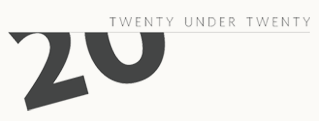It’s no secret that Peter Thiel thinks that the next big bubble facing our economy is not inflating the housing or tech markets, but that of higher education. The former PayPal CEO and early backer of Facebook is well-known for his contrarian views and has more than once publicly criticized higher education for being an overhyped and bloated industry. The entrepreneur-turned-investor has been on a mission to find alternative (and better) ways to motivate, foster, and support young people who want to make a difference.
In May, Thiel, along with his Foundation, put their money where their mouth is, announcing the “20 Under 20 Thiel Fellowship”, a program that offers talented independent thinkers under the age of 20 $100,000 and two years free of school to pursue their entrepreneurial endeavors. The program launched with 24 Thiel Fellows, each of these wiz kids pursuing their own inspiring scientific and technical projects. (You can meet the class here.)
Originally, the Thiel Foundation planned to award only twenty fellowships, but James O’Neill, who heads the Thiel Foundation, said there were so many outstanding candidates among the 400 applications they received that they were compelled to add four more spots.
Six months into the program, and already the progress has been impressive. O’Neill tells us that more than ten of the Fellows have founded companies, and at least one has already launched a product on the market. The progress of the program has been so good, in fact, that the Thiel Foundation has decided to launch a second class in 2012. The program is now accepting applications, with a deadline of December 31st. Candidates must be under 20 years of age until that date.
In preparation for next year’s class, O’Neill also peeled back the curtain a bit more on how the current class of young innovators have been faring in their first year. Andrew Hsu, who founded a company called Airy Labs (after dropping out of Stanford University as a fourth-year neuroscience Ph.D. candidate — at the age of 19) to build the next generation of social learning games for kids, launched with $1.5 million in venture funding. The round led by Foundation Capital with participation from Google Ventures, Rick Thompson, as well as other prominent angel investors and micro-cap venture capital firms.
Eden Full, who founded Roseicollis Technologies to take her solar panel tracking invention called the SunSaluter to developing communities, won the Staples-Ashoka Youth Social Entrepreneurship award, snagging $300K from the Postcode Green Challenge for her contributions to the solar industry.
Dale Stephens recently signed a deal with Penguin Press to publish his forthcoming book, Hacking Your Education.
And today, The Fellowship announced that Grand Challenges Explorations, an initiative that enables researchers to test unorthodox ideas that address persistent health and development challenges (created by the Bill & Melinda Gates Foundation) has rewarded Thiel Fellow Darren Zhu with a $100,000 grant.
Zhu founded Synbiosys, LLC, a synthetic biology company focused on building foundational tools to make biological systems easier to engineer and to commercialize their downstream applications. Specifically, Zhu and Synbiosys will be pursuing a global research project that aims to produce a low-cost diagnostic platform to diagnose Leishmaniasis, an understudied infectious disease that affects over 14 million people.
According to the Foundation, current diagnosis of the disease relies on expensive and invasive screening techniques, so Synbiosys is using synthetic biology to build a more rapid, inexpensive, and sensitive diagnostic tool that can be extended to diagnose other infectious diseases as well.
The early success of these impressive youngsters is certainly inspiring, and O’Neill said that he thinks the Fellows can become exemplars for other intelligent young people looking to get involved in technology. That’s why, he says, that the Thiel Fellowship makes picks participants based on who they are as people, rather than the particular project they’re pursuing. The program encourages Fellows to iterate and change course during their two years.
And they’re getting some serious guidance along the way. O’Neill says that they organize a retreat every quarter, in which they bring in experts to give talks and seminars on topics including IP tax, how to hire and motivate employees, develop products, pitch investors, and so on. Fellows also have the benefit of three “handpicked” mentors, chosen by the Thiel Foundation based on their interests.
It’s an awesome program for up-and-coming entrepreneurs and, with the way it’s being structured, O’Neill says that they’ve been surprised to find that the criticism from higher education has been a lot milder than they expected. Some professors and teachers are even encouraging their students to stop out and apply.
What’s more, “anyone under 20 is eligible” to apply. Lucky kids.

